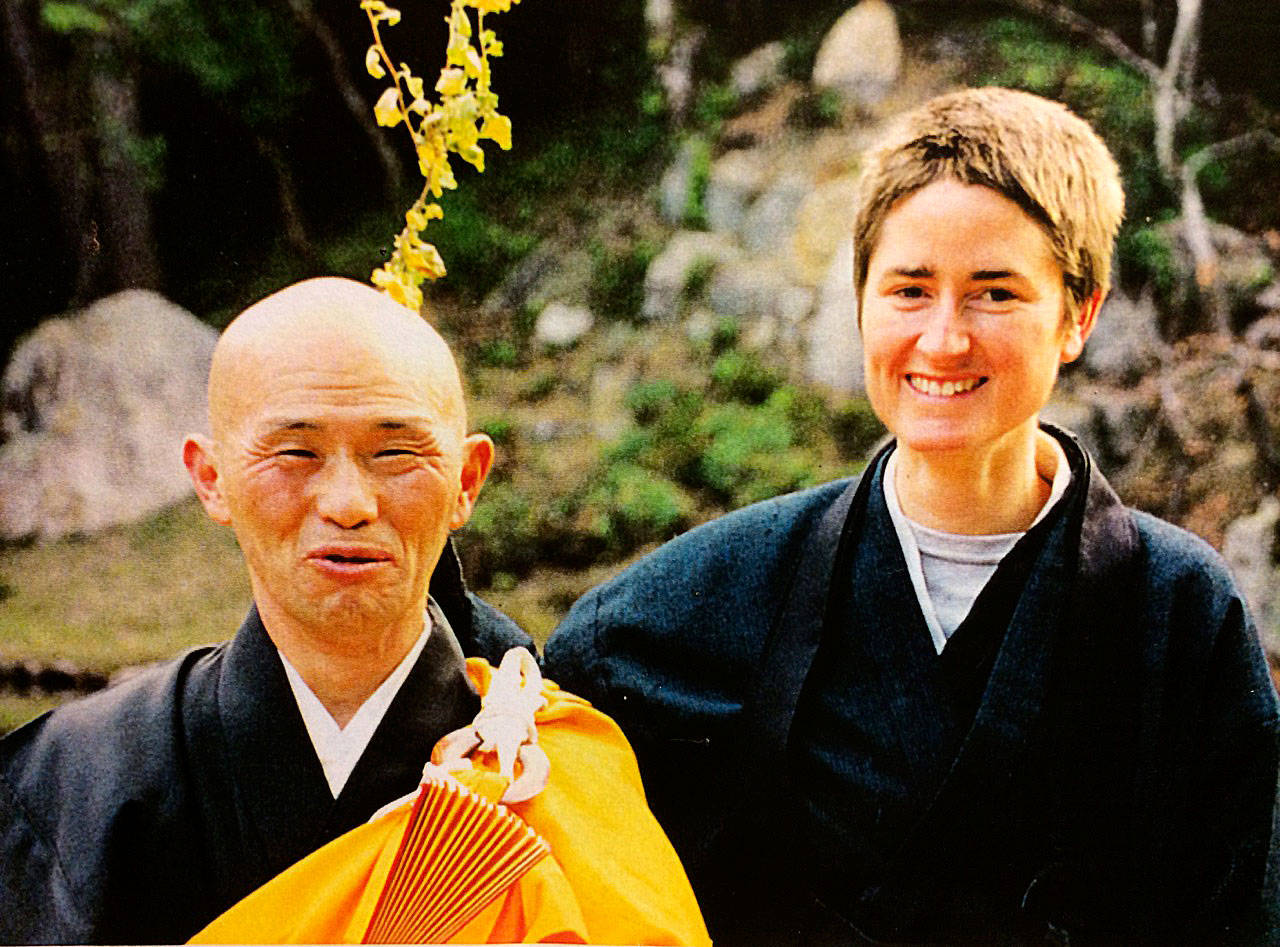One of the preeminent calligraphers in Japan and the abbot of Tahoma One Drop Zen Monastery in Freeland will be at Bayview Hall in Langley at 2 p.m. Sunday to give a dharma talk and demonstrate the ancient form of artistic writing that uses ink and a brush or pen.
Shodo Harada Roshi has given numerous calligraphy demonstrations and has published books of his work.
Scrolls, calligraphies and books will be available for sale at the event, whose proceeds will benefit the Tahoma One Drop Zen Monastery, a traditional Zen training center on 60 acres of land near Freeland.
Harada Roshi founded the monastery in 1996. In 2003, he opened a companion hospice facility called Enso House. He was formally installed as Abbot of Tahoma Zen Monastery in 2011.
He is also the abbot of Sogen-ji, a Rinzai Zen training monastery in Okayama, Japan, and he continues his intensive teaching schedule there and around the world.
“The grounds at Tahoma Zen encompass 11 buildings now,” said Jessica Sokei Leon, a Zen Buddhist who has studied in Japan and is the monastery’s community outreach coordinator.
The funds raised from Sunday’s event will be dedicated to building a new structure, a columbarium in the woods near the monastery garden.
As described on the Tahoma Zen website, a columbarium is a resting place for ashes of the deceased. The term comes from the Latin “columba” (dove) and originally referred to a dovecote, compartmentalized housing for doves and pigeons.
“Columbaria are similar in form to traditional Buddhist temples, which from ancient times have housed cremated ashes,” Harada Roshi writes. The practice allows for the family of the deceased to visit the temple to conduct traditional memorials and ancestor rites. Harada Roshi says his ashes will eventually be housed there as well.
The monastery’s name reflects the tradition of naming Japanese Buddhist monasteries after mountains. Thus the name “Tahoma,” the original, ancient name for Mount Rainier, which can be seen from a bluff near the monastery land. It also means “place of abundant dharma.”
In a further explanation of names, “Roshi” is a Japanese honorific used in Zen Buddhism that means “old teacher” or “elder master.” Shodo Harada’s surname is Harada. After training for 20 years, he was given the Buddhist name Shodo, meaning “True Way.” Occasionally, he also uses the name “Taigen,” a second name given by his teacher.
Jessica Leon’s Buddhist name, Sokei, translates to “pure crystal.”
The monastery maintains a schedule of morning and evening meditation, including Zazenkai every Sunday morning, where beginners to Zen are always welcome. There are also weekend retreats once a month and intensive meditation training with Harada Roshi three times a year. Members also provide respite retreats for caregivers and the operation of Enso House.
• Calligraphy Demonstration and Dharma Talk with Taigen Shodo Harada Roshi. At 2 p.m., Sunday, May 13, Bayview Hall, 5642 Bayview Road, Langley. Calligraphies, scrolls and books will be for sale. Free admission; call 360-331-4142 for more information or visit www.tahoma zenmonastery.org



